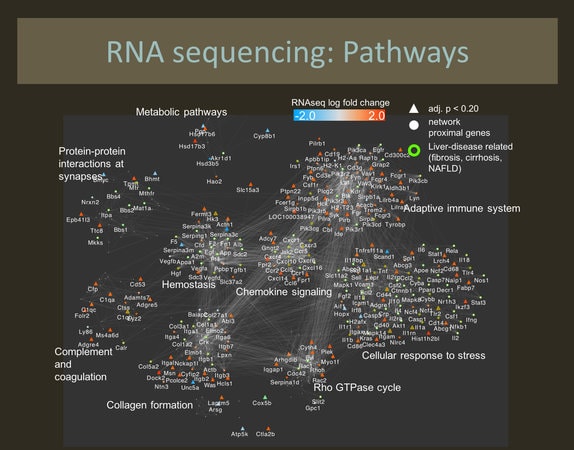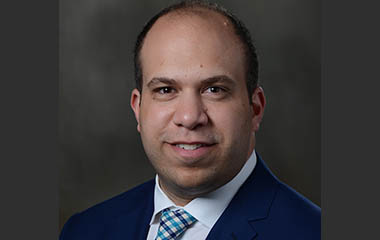An award recipient’s work leads to larger federal funding
Omar Mesarwi, MD, is an assistant clinical professor of medicine at the University of California San Diego School of Medicine. He received the 2017 Physician Scientist Training Award for his project, “Mechanisms of Liver Fibrosis in OSA.”
Dr. Mesarwi’s research focuses on the mechanisms which tie together obstructive sleep apnea (OSA) and metabolic dysfunction. His specific interest is in the ways by which the deprivation of oxygen (hypoxia) due to OSA may worsen nonalcoholic fatty liver disease (NAFLD) at a cellular level. Using mouse models with diet-induced obesity, he has determined that a protein called hypoxia inducible factor-1 (HIF-1) in certain cells of the liver mediates the development and progression of NAFLD, suggesting that liver tissue hypoxia due to OSA may be a key determinant of NAFLD (Figure 1).

Figure 1: Dr. Mesarwi’s work in mapping the pathways by which certain proteins mediate liver health
“We have found that HIF-1 appears to influence gene expression in specific ways which result in activating liver fibrosis pathways,” said Dr. Mesarwi. “This appears to cause liver fibrosis in NAFLD, and while details are still emerging, HIF-1 deletion may protect from hypoxia-mediated dysfunction at a cellular level.
“We don’t have great therapeutics for OSA: The best we can offer right now is nasal continuous positive airway pressure (CPAP), which is cumbersome and difficult to use, and so adherence to therapy is often low,” Dr. Mesarwi adds. “However, if we can identify pathways which cause some of the adverse health outcomes associated with OSA, we can hope to provide more targeted therapies which will mitigate the risk imposed by OSA.”
In terms of the potential impact of Dr. Mesarwi’s project on sleep medicine, he says, “My project will hopefully shed light on the role of hypoxia, and OSA, on NAFLD development and progression. In a broader sense, I hope that the impact is eventually more significant and allows us to identify more targeted OSA therapeutics.”
“This award helped me obtain preliminary data for my first National Institutes of Health career development grant, a K08, which I anticipate will be funded beginning in July 2019,” said Dr. Mesarwi. “That kind of seed-funding support is incredibly valuable, and I certainly would not have been able to obtain federal funding without the AASM Foundation award.”
Written by Corinne Lederhouse
AASM Communications






